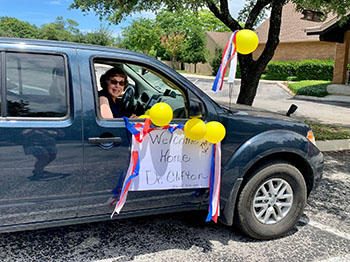
As the United States sees its politics and economic systems become increasingly nationalized, pundits and professors have a tendency to highlight our different regions—and the unique histories and subcultures that are inherent to them—to explain our differences in terms besides “red vs. blue” or “right vs. left.” While it’s worth celebrating our rich localized heritages, the fact is that regional differences in political culture and behaviors, along with communal outlook and social relationships, do not hold up to empirical scrutiny—differences are wildly overstated.
It is regrettable in my view, then, that the New York Times just ran a well-circulated piece about the country’s response to COVID-19, one that argued that New England and the Northeastern part of the United States more generally is culturally different—and in this case, superior—due to its past. The piece argues that “the crisis has drawn out key regional differences,” and quotes an Ivy League professor who states that, “In New England and the Northeast, it is easier to say, ‘Let’s put on a mask and lock down, we’re all in this together, we know each other.’” Such a sentiment presupposes a unique set of civic virtues and social norms in New England lacking elsewhere.
Statements of New England elitism are not in any way helpful as the country works to protect itself during this pandemic, and what’s worse is that these ideas are simply not substantiated by data as AEI’s new survey on COVID-19 and American Life makes quite clear. It’s dangerous to let a false narrative take hold, especially during a pandemic.
As an example, the AEI survey asks respondents how well their neighbors and community members are maintaining social distance from each other. Looking at the two positive categories, very well or somewhat well, the national average is 81 percent. Breaking down the responses regionally, minor regional variations emerge with New England being almost exactly at the national average. Most other regions are within a handful of points of the average with the Mid-Atlantic region—which features New York and the coronavirus epicenter—sitting on the high end with 86 percent holding that communities are social distancing. The low point is the East South Central region, which includes Mississippi, Alabama, Tennessee, and Kentucky, at 74 percent but large majorities in all regions are all social distancing.
Relatedly, when asked if one has worn a face mask or face covering, 86 percent of Americans respond that they do. In New England, the rate is 96 percent, and in the Mid-Atlantic region, it’s 95 percent. The Pacific Coast and the East North Central region, which includes Illinois, Wisconsin, and Michigan, are both in the mid-80s, percentage-wise. The lowest figure is 75 percent in the Mountain region—but these tend to be open, rural areas compared to the densely populated Northeastern region.
Further, the data show that sociability is not higher in New England towns despite regular popular images of town greens with vibrant civic life and participatory local democracy. In fact, the AEI survey conducted during this pandemic reveals that 53 percent of Americans know their neighbors very or fairly well and the number is the same—53 percent—for those in New England. This figure is barely a majority, suggesting that large numbers in New England and the rest of the nation simply do not know those in their communities well. Looking at other regions, those in West North Central which includes states such as the Dakotas, Minnesota, and Missouri are at 57 percent and the South Atlantic, which includes the Carolinas and Georgia, is at 56 percent. The empirical reality lost in the New York Times is that those in New England do not know their neighbors at rates appreciably higher than anywhere else.
Thinking about questions of communal generosity during COVID-19, the survey asked Americans if they believe that most people are looking out for themselves or are trying to be helpful and 65 percent of Americans hold that most are just trying to be helpful.
Read the rest of this piece at The Dispatch.
Samuel J. Abrams is professor of politics at Sarah Lawrence College and a visiting scholar at the American Enterprise Institute.
Photo credit: Bianca Rodriguez via U.S. Army website, under Public Domain












